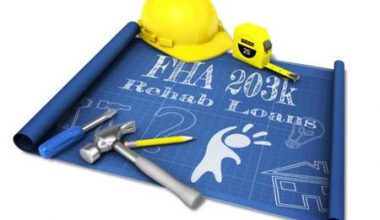The purchase of a home can be a challenging transaction that involves negotiations between the buyers and the sellers. In most cases, the real cost of buying a home, which includes down payment, closing charges, appraisal/inspection fees, title insurance, property taxes, and cost of maintenance, can be significantly greater than the purchase price, which often surprises homebuyers, especially first-time buyers. At every stage of a transaction, the buyer and the seller seek to maximize their profits while minimizing their expenses during the sales process. The seller may be willing to assist with these costs if the circumstances warrant it. This is known as “seller concessions,” and they can save you hundreds of dollars when acquiring a new home. By the time you’re done reading this article, you should have a good idea of what a seller concession means in an FHA loan with an example.
What Is a Seller’s Concession?
These are closing costs that the seller pays to assist the buyer in lowering the amount of cash needed to complete the transaction. The seller offers to pay these costs to minimize the amount of money a buyer must pay at closing.
Generally, they are usually discussed on the buyer’s behalf as part of the offer and are occasionally asked for in advance. A buyer may also seek a seller’s concession later in the process. This is in order to help defray the cost of any renovations discovered during the house inspection.
In buyer’s markets, a seller’s concession can help ease the buyer’s burden, but they are rarely provided in seller’s markets.
How does Seller’s Concession work?
The process of purchasing a property entails numerous procedures that can be confusing. Especially if you didn’t complete it with the assistance of a knowledgeable real estate agent. Regardless, when making a purchase, it is critical to understand what you are getting yourself into.
A seller’s concession is something that many individuals trying to buy a home are unaware of. Also known as “seller contributions,” it relates to an agreement in which the seller pays a portion of the home’s financing costs for the buyer.
In other words, a seller’s concession is a gift from a seller to a potential buyer. And it’s to lower the cost of purchasing a residence. The money the seller offers might then help cover closing costs or HOA fees. Alternatively, if a homebuyer discovers something broken or out of code during the inspection, the seller may agree to pay for the repair.
A seller may be able to offer a future homeowner a special bargain, such as an all-expense-paid vacation. It can dramatically reduce future homeowners’ out-of-pocket expenses.
Likewise, a seller’s concession is what can benefit both buyers and sellers; with a seller’s concession, the buyer will owe less money and may be eligible for a tax deduction. A seller who is having trouble selling their home, on the other hand, has the golden chance to boost the bargain.
Regardless of whether a buyer has an FHA, VA, or USDA loan, they can still get a seller’s concession. Meanwhile, there are laws dealing with limitations on the highest amount that a vendor can accept.
Read Also: Contingent Offers: Definition and Detailed Guide
What Can Seller Concessions Cover?
Generally, a seller’s concession can cover a variety of costs;
Appraisal Fees: This normally covers the cost of having a home appraised by a licensed third party to ascertain its market value.
Attorney Fees: An attorney must review closing documents. This is not the case in all states, though. Only some of the states have the practice. Whatever the case, the attorney fees will cover the expense of real estate attorney services.
Discount Points: Mortgage points, or discount points, are a type of advance interest that you pay to lower your interest rate.
Loan Origination Fees: These origination fees cover the cost of processing your loan with your lender.
Property Taxes: At closure, there may be pre-paid property taxes through the end of the year.
Recording Fees: Typically, these recording fees will cover the cost of recording your home’s purchase with your local government.
Title Insurance: If someone files a claim against the home’s title, title insurance protects you and your lender.
Seller’s Concession FHA
With one important exception, a seller(s) concession can be utilized to cover nearly all FHA loan closing charges. A buyer who submits an offer in search of several seller concessions may have their bid rejected. As such, there is a delicate balance to be struck. However, there are situations when seller concessions benefit both the buyer and seller.
From the perspective of the client, FHA loans provide a few benefits, especially with a seller conversion. One is that you may buy a house for as little as 3.5 percent down.
In general, when purchasing a property, the seller’s concession practice allows FHA home loans to proceed with the process with the seller paying some of the closing expenses on the borrower’s behalf. The Federal Housing Administration (FHA) enables home sellers to contribute up to 6% of the sales price toward closing costs.
Hence, a buyer can pay for real estate expenses, mortgage charges, state and local taxes, as well as title insurance with this FHA seller concession.
However, while you can use these funds to cover some of a borrower’s closing costs, you can never utilize them as a down payment on an FHA loan.
Who Is Seller Concession FHA For?
An FHA seller concession is available to buyers who don’t have enough money for down payments, closing expenses, and reserves. It’s also handy for house buyers who want to keep some of their money after closing to make changes.
Seller concessions are also for sellers who want to make their home more financially appealing to purchasers to sell it faster or for a discounted cost.
Seller Concession Example
Concessions from sellers aren’t a requirement. Likewise, it’s not an obligation they give them to purchasers. No, it doesn’t work like that. Rather, there will be a negotiation between the buyer or the buyer’s agency and the seller or the seller’s agent as regards the concession amount.
- An example of a seller concession situation using a home with an initial sale price of $300,000. You and the seller can agree on a higher price of $305,000, with the $5,000 as a concession sum. Normally, the concessions are added to the mortgage and will be used to cover closing fees. However, concessions do not provide cashback to buyers at closing, and you cannot use them to repay the down payment. They’re designed to help the buyer save money.
- We can relate another example of a seller’s concession to closing cost credits. Normally, as a seller, you’re well aware that, in addition to the down payment, your buyer will be responsible for closing fees at the time of purchase. These fees, on their own, can be substantial. As a result, a buyer may request a closing cost credit from the seller to offset some of the upfront costs.
- A seller, for example, may provide a concession to mitigate possible or existing maintenance expenses. This is a method to help a buyer who is reluctant or otherwise unable to consider replacing an old roof if a home appraisal finds that such a house requires costly repairs.
- Another example of a seller concession might be when the seller agrees to pay a portion of the buyer’s closing costs. Thus, lowering the buyer’s out-of-pocket expenses. The variety of dwellings in a highly competitive market environment can make houses with a seller concession more appealing to a purchaser.
Seller Concession Vs Price Reduction
When a buyer discovers that a home needs repairs, the buyer has many options
- Demand that the vendor complete the repairs.
- Request a concession from the seller.
- Request a reduction in the selling price.
However, if the seller refuses to make repairs but is ready to reimburse the buyer, then the buyer must choose between a concession and a price reduction. What is the distinction?
To begin with, it’s important to note that these are not interchangeable. While a seller concession may bring immediate comfort to a buyer at closing, the buyer may be accountable for a bigger loan amount in the long run. On the other hand, a price reduction refers to a seller cutting the price of their home.
The seller’s concession will be credited to the buyer’s side of the escrow balance sheet, and the seller’s side will have a debit balance. Hence, the seller’s credit will apply to the total amount owing for the residence.
A sale price reduction, on the other hand, is as simple as lowering the purchase price. Although it has a small impact on the amount of money the buyer must bring to closing.
Now that we have a vision of how seller concession differs from the price reduction. We can then go into a full and detailed explanation of these two terms in the real estate world.
Price Reduction
When a home has been on the market for a time, the seller may opt to lower the asking price to entice a motivated buyer. However, a seller willing to lower the price value of a house won’t just put a 10 or 15% off sign on such a house. Instead, the seller can request a “price reduction” during the bargaining process. As a result, an industrious buyer may find a home with a price reduction that meets all of their criteria.
Price reduction in real estate simply implies that the seller is ready to cut down the original listing price of a house to encourage purchasers. This may be because the initial asking price was too high to elicit interest and offers. Alternatively, there could be the right offer for the house but the seller is eager to sell. While on the contrary, the seller may reduce the price for both of these reasons.
When a seller agrees to a price drop in a real estate deal, it means the sellers have finally acknowledged they want to sell. Nevertheless, the mainline for buyers is that when the seller decreases the asking price, it nearly always indicates that the seller is eager to sell the home as soon as possible. The buyer, on the other hand, may be able to obtain a terrific deal.
Seller Concessions
When the seller covers a portion of your closing fees, this is known as seller concessions. Unfortunately, this does not imply that you will receive those monies in cash or as a loan reduction. Rather, the seller proposes to pay a particular sum by inflating the home’s price.
A seller concession, for example, in FHA, is when a property seller offers a prospective buyer a cash incentive. The purpose of this is to make acquiring the property more appealing. However, it is critical to ensure that all seller concessions are specified within the contract and that both parties have an agreement with them.
In both a buyer’s and a seller’s market, seller concessions assist the buyer in making a purchase and the seller in closing the sale. Although residential and commercial real estate deals can both benefit from seller incentives. Regardless, knowing the price actions of seller concessions before purchasing or selling a home might help you avoid making a costly mistake.
During contract discussions, the buyer may seek seller concessions, or the seller may make one during the entry process. Whatever the reason, in a buyer’s market, a seller’s concession frequently lowers the housing sales price. While in a seller’s market, a buyer may demand a price rise to counterbalance the cost of a proposed seller concession.
Conclusion
The process of purchasing a property entails numerous procedures that can be confusing. Especially if you didn’t complete it with the assistance of a knowledgeable real estate agent. Regardless, when making a purchase, it is critical to understand what you are getting yourself into.
A seller concession is when the seller covers a portion of your closing fees. Unfortunately, this does not imply that you will receive that money in cash or as a loan reduction. Rather, the seller proposes to pay a particular sum by inflating the home’s price.
Seller concessions assist the buyer in making a purchase and the seller in closing the sale. Of course, residential and commercial real estate deals can both benefit from seller incentives. However, knowing the price actions of seller concessions before purchasing or selling a home might help you avoid making a costly mistake.
Seller Concession FAQs
Are there any limits on seller concessions?
Yes. Your seller will not be able to cover all of your closing costs. The amount your seller is willing to pay depends on the type of loan you’re taking out and other considerations.
Do Seller concessions make sense?
Working with a professional real estate agent could be beneficial if you’re contemplating requesting concessions. They’ll be more knowledgeable about the local housing market and may assist you in determining which closing fees to request the seller to cover. They’ll be able to help you submit your offer and work with the seller throughout negotiations.
What about the tax implications?
Accepting seller concessions has no negative tax consequences in general. You could even be able to claim a tax break.
What is a Seller's Assist?
A seller’s help is the same as a seller’s concession. Both of these phrases have the same meaning. When discussing a homeowner assisting in the payment of a buyer’s closing fees, the terms seller’s assist and seller’s assistance are interchangeable.
Related Articles
- GRANT DEED: Best US Practices & All you should Know
- CLOSING AGENT: Salary, Job Description & How to Become an Agent (Detailed Guide )
- What Credit Score Do You Need to Buy a House: Best US Practices in 2023
- Cost Reduction Strategies And Initiatives With Detailed Examples
- Buyer’s Journey: Meaning, Stages & How to Implement in Sales Process






